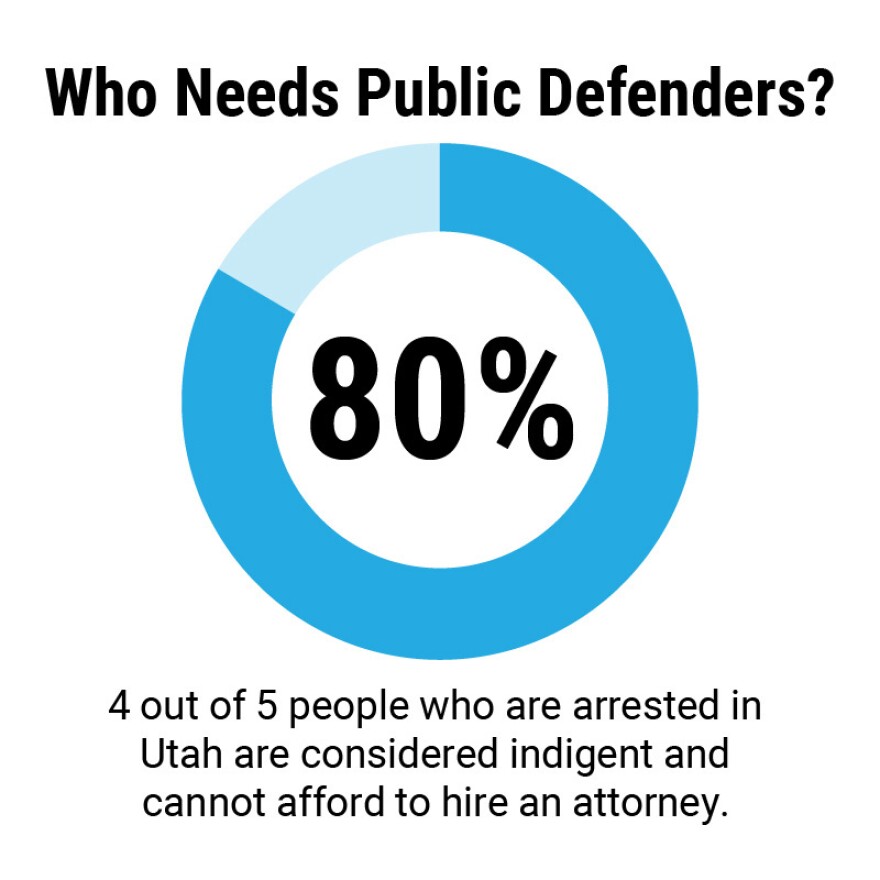After the state Legislature largely rolled back a law aimed at moving Utah away from cash bail reform, Representatives from Utah’s criminal justice system are back at the table to try to find a police they can all agree with.
As reform shifts to the center of the conversation, defense attorneys are divided on what role monetary bail should play going forward.
For mid-level crimes, bail is a good option, according to Steve Burton, a private criminal defense attorney and executive director of the Utah Association of Criminal Defense Lawyers. That’s especially true, he said, when counties don’t have programs set up to administer conditions like ankle monitors.

“If we continue to use bail as a tool to get people to return to court, then it can potentially be used effectively in that way and still play a role in the justice system,” he said.
While monetary bail was still an option judges could use under the bail reform law, Burton said they primarily either released someone for free or held them in custody without bail.
But Todd Utzinger, who heads up the public defense program in Davis County, said Burton’s argument is misguided. He said it assumes that someone’s ability to post bail is a reflection of how safe it is for them to be out in public — and that’s not always the case.
“Poor people remain in custody just because they're poor,” he said. “Wealthy people get out just because they have a credit card. That's a distinction that makes no sense. It has no bearing on public safety and frankly, very little bearing on whether they appear in court.”
In Utah County, public defense attorney Ben Aldana said it's more important for defendants to be given a timely hearing with their appointed attorney.
As it stands now, low income defendants, which are 80% of people accused of crimes in Utah, don’t yet have an attorney appointed to represent them in time for a bail or pretrial release hearing, which happens within 24 hours of their arrest.
“If I had the opportunity to have a meaningful bail hearing and bring that officer into court and cross-examine them,” Aldana said, “Maybe the judge would take that into consideration and grant my client bail or release.”
If cash bail is used more under a future policy, Burton, Utzinger and Aldana all said judges should take into consideration what amount people can afford, rather than assigning a predetermined amount that corresponds with a certain crime.






